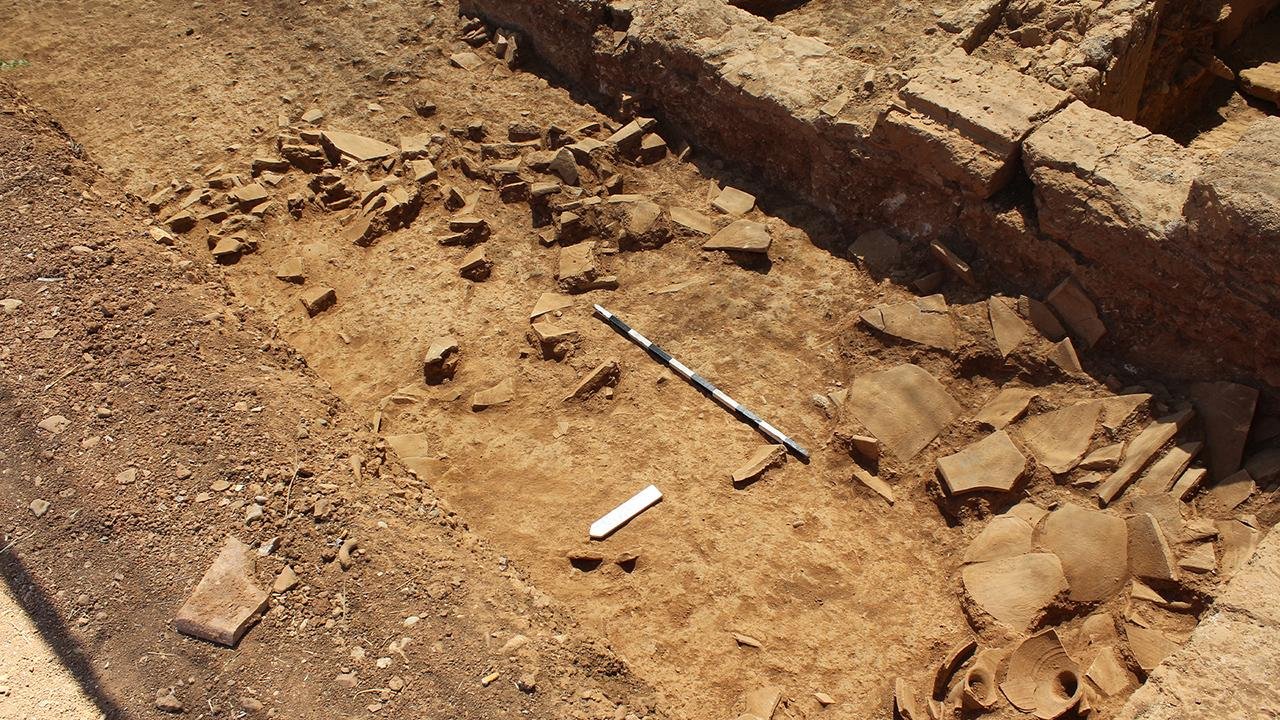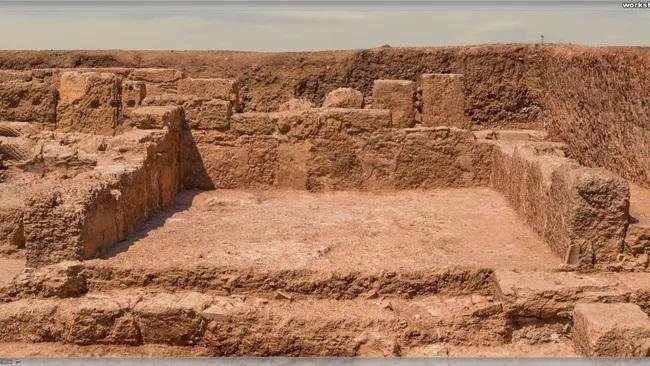Archaeologists in Greece have uncovered a 1,600-year-old Roman-era wine shop that met its demise following a mysterious and sudden event, potentially an earthquake or a building collapse.
 The Roman-era wine shop in Greece. Credit: Scott Gallimore
The Roman-era wine shop in Greece. Credit: Scott Gallimore
The findings include shattered vessels and a collection of 60 coins scattered on the floor, offering a glimpse into the final moments of the ancient establishment.
The wine shop, situated in the ancient city of Sikyon (Sicyon) on the northern coast of the Peloponnese in southern Greece, operated during the period when the Roman Empire held sway over the region.
The archaeological site reveals a complex that housed the wine shop on its northern end. The larger complex featured a series of workshops equipped with kilns and installations designed for pressing grapes or olives.
 The archaeological site reveals a complex that housed the wine shop on its northern end. Credit: Scott Gallimore
The archaeological site reveals a complex that housed the wine shop on its northern end. Credit: Scott Gallimore
The team of archaeologists, including Scott Gallimore, an ᴀssociate professor of archaeology at Wilfrid Laurier University in Canada, and Martin Wells, an ᴀssociate professor of classics at Austin College, discovered not only coins but also remnants of marble tabletops and various vessels crafted from bronze, glᴀss, and ceramic within the wine shop.
Despite the abundance of artifacts, the researchers, in an email interview with Live Science, expressed the challenge of pinpointing the specific types of wine sold at the establishment.
“Unfortunately, we don’t have any direct evidence of the types of wine that may have been sold. We have some evidence of grape pips (Vitis vinifera), but we aren’t able to say anything more specific than that right now,” Gallimore told Live Science in an email.
The majority of the coins discovered in the shop date back to the reign of Constantius II, spanning from 337 to 361 CE, with the latest coin minted between 355 and 361 CE. The scattered arrangement of these coins on the shop’s floor suggests that they were kept together, possibly in a ceramic container or some form of bag. The destructive event, which led to the abandonment of the wine shop, caused this container to fall and scatter the coins, leaving the establishment in ruins.
“We’re not sure what type of event this was — possibly an earthquake, or possibly a roof collapse due to environmental conditions, like too much rainfall,” speculated Gallimore. Following the event, debris and sediment covered the premises. While the researchers lean towards an earthquake or a possible roof collapse due to environmental factors, conclusive evidence remains elusive.
 A view of the wine shop from the front. Credit: Scott Gallimore
A view of the wine shop from the front. Credit: Scott Gallimore
The ancient wine shop, along with the entire complex it was part of, seems to have been abandoned in the early fifth century, aligning with the speculated time of the destructive event. The lack of recovery efforts after the event suggests a sudden and perhaps traumatic abandonment of the site.





